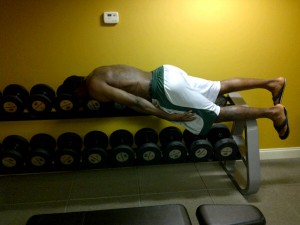People love to pick on the presidency of Jimmy Carter. To be sure, there’s much to criticize. But Carter has done awesome deeds since leaving Washington 33 years ago.
One such deed: working to break the stigma around mental illness.
Mood music:
Being a journalist, I know how important it is for skilled writers to lift the veil off the scourge so the masses can understand. I never tackled such a beat as a reporter, but in my own subject areas I know how far training can go in helping the writer understand the stories in front of them. One of the cool things about the Carter Center’s effort is that training journalists is a program centerpiece.
To that end, the Carter Center has announced the recipients of the 2014-2015 Rosalynn Carter Fellowships for Mental Health Journalism.
Carter Center fellows receive intensive training from leading mental health and journalism experts and a $10,000 stipend (or a comparable amount for international fellows) to report on a mental health topic of their choice. As the Carter Center noted in its press release:
Previous fellows have produced more than 1,300 mental health-related stories, documentaries, books, and other works during and after their fellowship year. Their projects have garnered multiple Emmy awards, nominations for the Pulitzer Prize, a Peabody Award, an Edward R. Murrow award, and awards from Mental Health America, the National Alliance on Mental Illness, the American Psychological Association, American Psychoanalytic Association, Amnesty International, and the Association of Health Care Journalists.
Congratulations are in order for this year’s fellows:
U.S. Recipients
Katti Gray, independent journalist, Monticello, N.Y.
Topic: Examine special courts that keep veterans with mental illness out from behind prison bars as well as explore innovations for managing those who end up on lockdown.
Matthew Herper,senior editor, Forbes, New York, N.Y.
Topic: Explore what has caused the rise in diagnoses for ADHD and what has shaped the treatment of it.
Nadia Kounang, producer, Medical, Health, and Wellness Unit, CNN, Atlanta, Ga.
Topic: Investigate mental health issues and incarceration in a long-form television project.
Mary Annette Pember, independent journalist, Cincinnati, Ohio
Topic: Research the influence of intergenerational historical trauma on mental health in Native American communities in a series “Last Orphans at Holy Cross.”
Megan Thompson, producer and correspondent, PBS NewsHour Weekend, PBS, New York, N.Y.
Topic: Explore the connections between mental health and poverty, especially among children.
Misty Rae Williams, reporter, Atlanta Journal Constitution, Atlanta, Ga.
Topic: Report on the challenges facing Georgia’s mental health system as it approaches the end of a five-year settlement agreement with the U.S. Department of Justice.
Colombian Recipients
Natalia Gómez Carvajal,editor, El Tiempo, Colombia
Topic: Explore the life of Colombian refugees displaced by violence who live in urban settings in extreme poverty and suffer from mental illnesses through a photojournalistic project.
María Paula Laguna Trujillo and Laura María Ayala Rodríguez, Semana, Colombia
Topic: Combine print and Web to examine the mental health conditions of Colombian prisoners and their lack of access to psychiatric services through a multimedia project.
Go forth and be the change!






